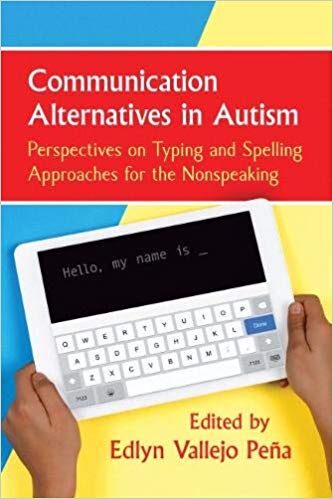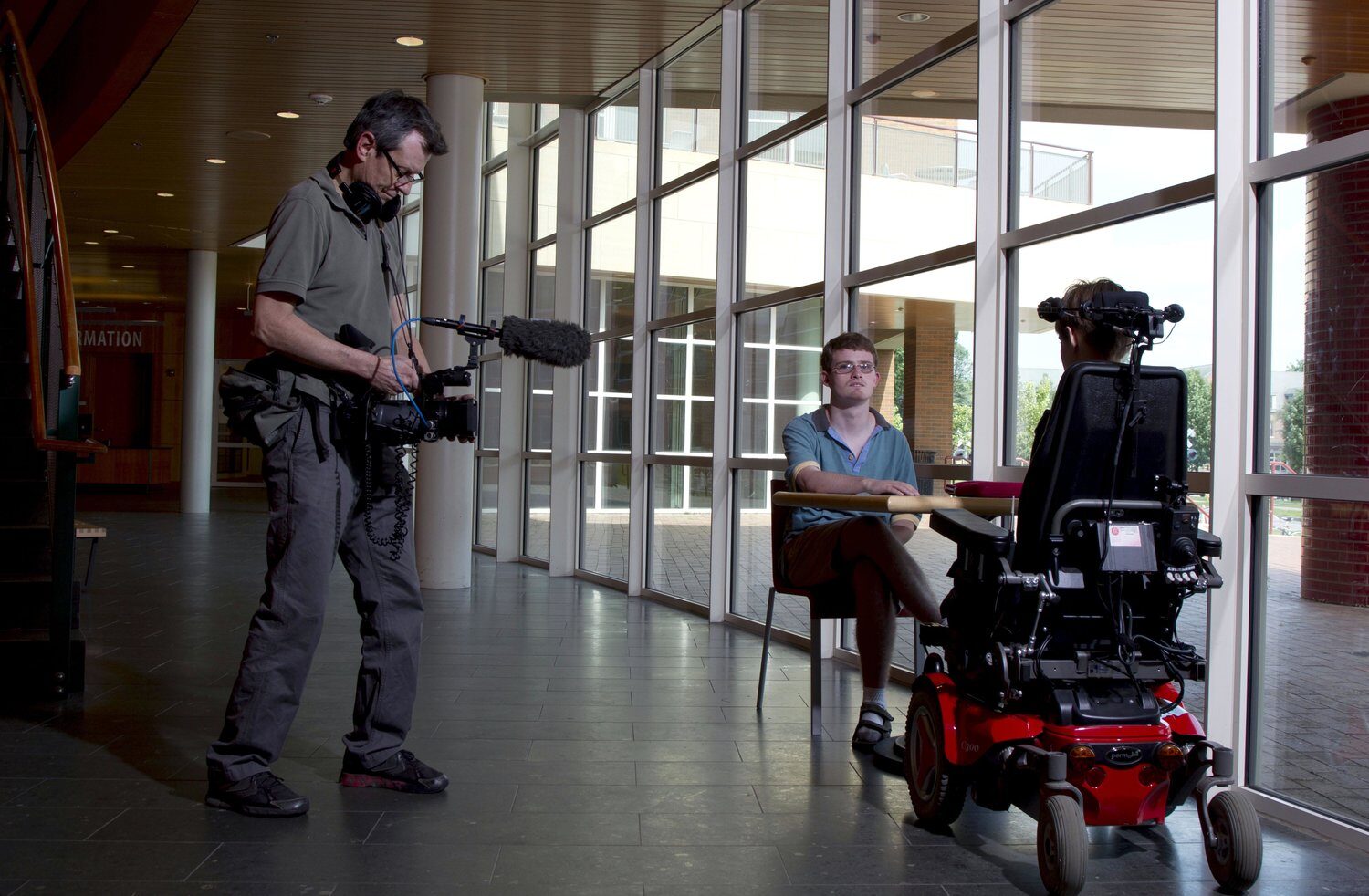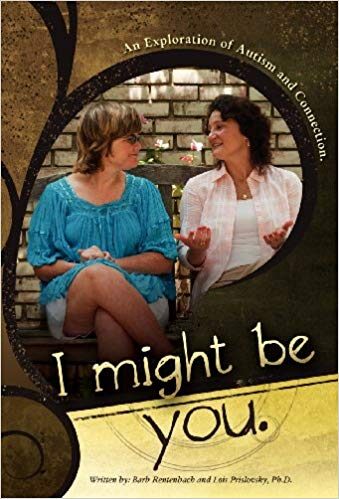Those who would deny people access to their most effective method of communication because of concerns about the potential for false accusations should, as Rua Williams recently wrote, “ask [themselves] why a false accusation is more harmful than the ability to accuse.”
Tag: Facilitated Communication
[Image: Book cover with a background that is blue on the left and yellow on the right. A red bar in the upper center contains white text reading, “Communication Alternatives in Autism,” followed by smaller yellow text reading, “Perspectives on Typing and Spelling Approaches for the Nonspeaking.” Below, two hands hold a white tablet device with a keyboard visible and white text on black reading, “Hello my name is …” Below, red text reads, “Edited by Edlyn Vallejo Peña”] Communication Alternatives in Autism contains the perspectives of ten autistic self-advocates, who “share their experiences with alternative forms of communication. Their narratives document the complexities that autistic individuals navigate—in both educational and community settings—when choosing to use approaches that utilize letter boards and keyboards.” Review by Olympia Eleni Ellinas Autistic children and adults, around the world, are being treated as if they aren’t humans, as if they aren’t capable of sentient thought.…
[image: Production photo of David Jame Savarese (Deej), a thin white male with short, cropped hair and glasses, wearing a light blue polo shirt and beige slacks, seated at a table facing his girlfriend who is seated in a power chair back to us, facing him. A man holding a camera is standing to their left and caught in the act of filming them. ©DEEJ movie www.deejmovie.com/press] Kerima Çevik theautismwars.blogspot.com “A distinguishing feature of scientific thinking is the search for falsifying as well as confirming evidence. However, many times in the history of science, scientists have resisted new discoveries by selectively interpreting or ignoring unfavorable data.” Wikipedia on Confirmation Bias I understand that professionals who aren’t familiar with autism and autistic lived experience may carry biases about non-speaking autistic people. I don’t accept it, but I understand it. We’re human and all of us have biases. When bias becomes a…
[image: Cover of the book “I Might Be You,” showing two seating white women facing and engaging with each other.] Maxfield Sparrow unstrangemind.com I Might Be You: An Exploration of Autism and Connection (2012) By Barb Rentenbach and Lois Prislovsky; Audio version (2013) read by Lois Prislovsky PhD and Ariane Zurcher Neurodiversity: A Humorous and Practical Guide to Living with ADHD, Anxiety, Autism, Dyslexia, The Gays, and Everyone Else (2016) By Barb Rentenbach and Lois Prislovsky; Audio version (2016) read by Chad Dougatz, Lois Prislovsky PhD, Carol Riggs Holloway, John Bond, and Jery Yarber I read “I Might Be You” in 2014 and loved it, but never thought to review it back then. When I discovered that Barb Rentenbach and Lois Prislovsky had a second book out, I got it in an Audible version and, on a whim, decided to get the Audible version of “I Might Be You” as well, and…
Elizabeth J. Grace www.tinygracenotes.com You can read in Loud Hands: Autistic People, Speaking about the shall-remain-nameless professor who said in front of me and many others in graduate school that autistics did not know what it was like to be themselves because they had no theory of mind, so one had to read research about them done by others in order to understand them at all, (which presumably if you were one of them, you never would anyway — this part is logically editorialized by me). There was another professor who said in a large class of aspiring special education and psychology researchers, “Except for Grace, the idiot savant, who doesn’t count,” because I recalled more than seven allegedly random numbers which were not actually random, but had a clear pattern, and he hadn’t told me ahead of time that the object of the exercise was to demonstrate that nobody…
Amy Sequenzia is an autistic self-advocate and poet. She types using Facilitated Communication (FC). She talked with us about what FC allows her to do, and what she would like people to know about it. What does Facilitated Communication (FC) mean to you? Why does it work for you? FC is how I can make my voice heard. I can say what I think, how I feel and I can be active in conversations, instead of being a passive observer. It works for me because nothing else did. My body can be very uncooperative and my mind can go from very active and unfocused to focused and calm — and back — in a very short time. It helps to have someone close to me for support, encouragement and to help me focus again. Physical support is important when I get spastic and when my arms get too heavy for…
Thinking Person’s Guide to Autism no longer supports the conclusions behind the original version of this post, and in fact opposes efforts to deny autistic people communication options based on outdated and insufficient evidence. We will be posting a full statement on our current position shortly. Shannon Rosa TPGA Senior Editor August 5, 2016



